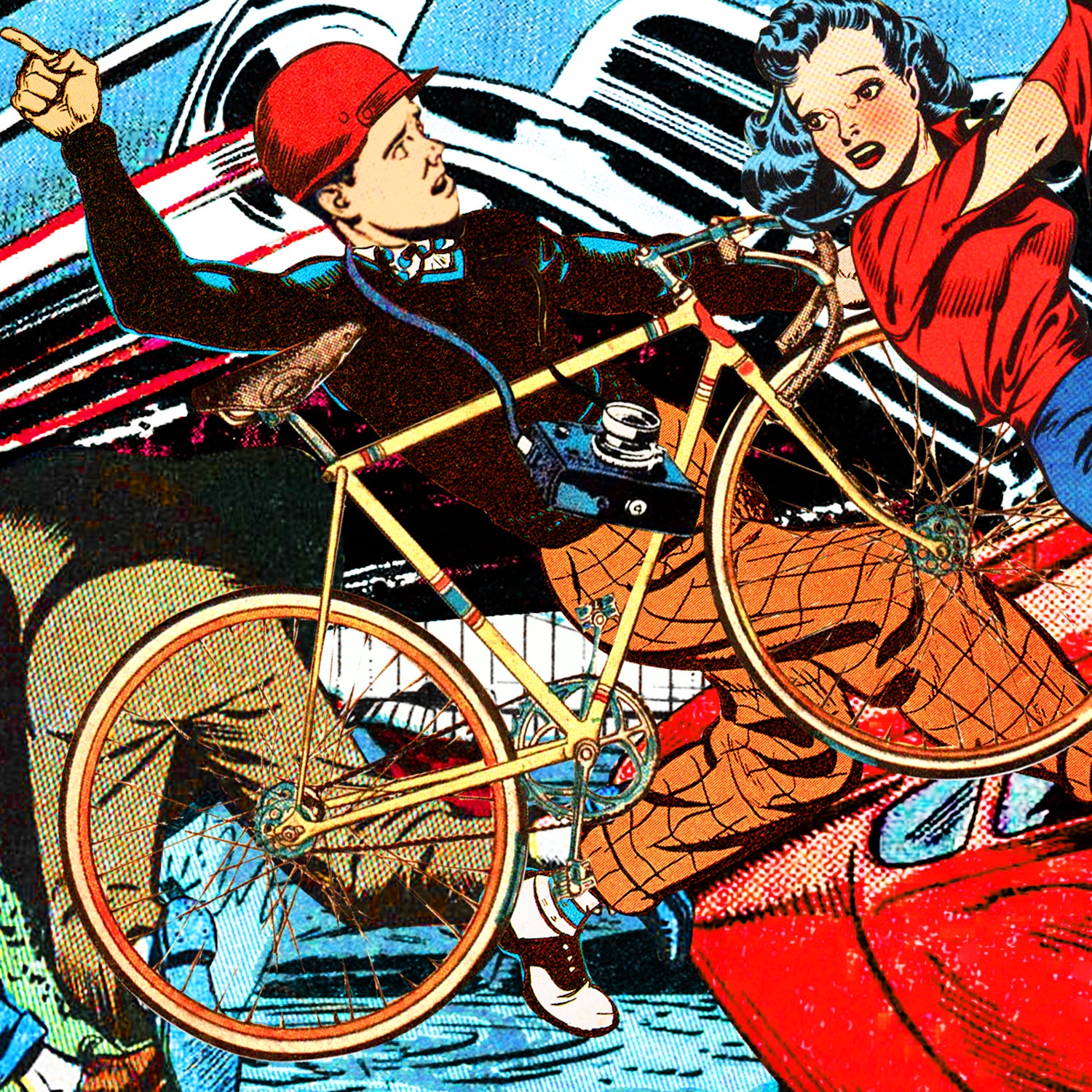America’s streets have gotten safer for those behind the wheel of a car, but they’ve become more dangerous for everyone else. While overall traffic deaths have been on the decline for at least 40 years, cyclist and pedestrian fatalities hit a 30-year high in 2018, as Americans buy bigger cars, use more distracting technology, and spend more time on the road.
This Is Every Cyclist Who Was Killed by a Driver in 2020
It hasn’t been this dangerous to ride a bicycle on American roads in three decades.No one wants to think about getting hit by a driver, but it’s important to know what to do if it happens. The moments after a crash are full of shock and confusion, and you’ll need to keep your wits as much as possible��so you can prepare (if necessary) to deal with insurance companies, law-enforcement officials, and lawyers in the days and weeks to come. When you’re on a bike or walking, it can be easy to get pinned with the blame. As the resource guide published by , a New York–based advocacy group, puts it: “If you wish to hold the driver accountable in any way for the crash, just know it can be a long and complicated process.”
Lenore Shefman, an attorney in Austin, Texas, —people on foot, bikes, and motorcycles—emphasizes the same point when she gives talks at local bike shops. “Every person on a bike should know that, just by being on an alternate vehicle, you’re already at a disadvantage,” she says. “Everybody drives a car, everyone leans toward��car drivers. We tend to be informed about those rules.” When it comes to bikes, though, that’s not the case. Shefman routinely finds that even police officers have little or no training about cyclists’ rights, which can lead to hasty investigations and victim blaming.
Here are steps that should lead to more positive outcomes.
At the Crash Scene
Get Somewhere Safe
Before you do anything else, move off the street. If you can, leave your bike where it fell, because it may provide useful evidence to an investigator. Then call 911, or ask someone else to do it.
Even if you feel all right, stay at the scene. You may need medical attention even if you aren’t in pain, and you’ll want to see��that the responding officer gets your side of the story and talks to witnesses.��In some states, police to write a report for the crash if there don’t appear to be any serious injuries or damages.
Make Sure the Scene Is Documented��
If you haven’t been seriously injured or taken to the hospital, Shefman recommends taking down the responding officer’s information so that you or a lawyer can follow up with them later. Cases abound in which officers misinterpret traffic laws or simply fail to talk to witnesses who may be able to back up the victim. Chana Widawski, a community organizer with Families for Safe Streets, says that, in her experience, you can’t always rely on officials to do their jobs. “Some of the [victim’s]��post-crash considerations are ridiculous things, like making sure that evidence is gathered,” she says. “That should be the job of whatever relevant police department. But the reality is that it often doesn’t get done.”
Be sure to get insurance and contact information from the person who hit you. If there are people around who saw the crash, ask for their contact information��as well. Take photos and video footage of your bicycle, the car that hit you, and the road.
Widawski says that victims are often inundated with��offers from��concerned loved ones asking how to help,��and that you should take them up on their generosity. They can chase down surveillance videos or put up signs around the crash scene asking witnesses to come forward. Such actions��can yield information that changes the trajectory of court cases.
No matter what, you should review the final crash report, which in most states��can be obtained by contacting the police department of the officer who responded. The report should take only a few days to be completed, and you’ll want to get it as soon as you can to make sure the details are right. Shefman regularly finds errors and omissions in these reports, and��in many cases, you can offer corrections by talking directly to the police.��
The Aftermath
Seek Medical Attention
Shefman recommends going to the hospital no matter what, because there’s a good chance you won’t know how badly you’re hurt in the shock of the moment. “Often��people appear much better than they are because adrenaline is pumping through them,” she says. “I had one person walking around on two broken legs, and an older woman who walked on a broken knee for two months.” Moreover, she says, her clients have almost always sustained some kind of brain injury; helmets are meant to protect the outside of your head from an impact, but they do nothing to prevent your brain from hitting the inside of your skull. You’ve just been struck��by a multiton metal object. Get a doctor’s opinion.
Even if you’re not seriously hurt, it’s worth going to the hospital to get your injuries documented. Keep all receipts and documents related to your medical care.��
Get a Lawyer
Many attorneys focus specifically on cases involving people injured on a bike, and a number of them have formed that operates in 18��states and Washington, D.C.
Families for Safe Streets, lawyers are generally paid on a contingency basis, meaning they get a portion of whatever settlement you receive (usually about a third). Widawski recommends talking to several attorneys to find a good fit. The most important consideration, she says, is making sure they��have experience in this area of the law. Families for Safe Streets offers as you evaluate your options.
A lawyer will help you��determine whether your crash report has been��filled out correctly, and they can help negotiate the insurance and medical systems. You’ll likely need to file an insurance claim soon after the crash, which may involve talking to the driver’s insurer, and you’ll want assistance��with that. You can start by calling the insurance company and telling them who was involved in the crash and when it occurred, but you’ll want a lawyer with you before giving further details. If the driver is criminally charged, a lawyer may be able to connect you with resources to mitigate costs associated with your role in the case, like the justice department’s .
In the long term, one of the biggest risks you face will likely��be financial. Liability laws vary state by state, and figuring out who is responsible for medical bills can be complex. It’s also possible that your own insurance company will try to take a portion of any compensation you win in a civil trial. Both Widawski and Shefman say they’ve seen crash victims lose jobs��and even slip into homelessness��as they try to recover.
Find a Community
“This is all about trauma,” says Widawski, noting that the initial trauma of the crash is often compounded by the prolonged��insurance and criminal-justice processes that follow. Others have been through something similar and can help you cope. Families for Safe Streets holds in New York City for people who’ve been injured by drivers, and additional��chapters across the country are starting their own support groups. The organization also has a to connect survivors of car crashes across the country.
Speak Up
Many crash survivors find a sense of purpose in pushing local politicians, prosecutors, and urban planners to take traffic violence seriously. If you feel the system has failed you in some way—perhaps a reckless driver is back on the road, or you were hurt on a poorly designed or dangerous street—and you want to work for change, Families for Safe Streets and other groups can help you get your voice out there. Parallel organizations tackling the issue in other cities include��, , and the��. “We want to provide a channel for people to turn their anger, frustration, and sadness into action to prevent anyone else from knowing the pain that they’ve gone through,” Widawski says.


